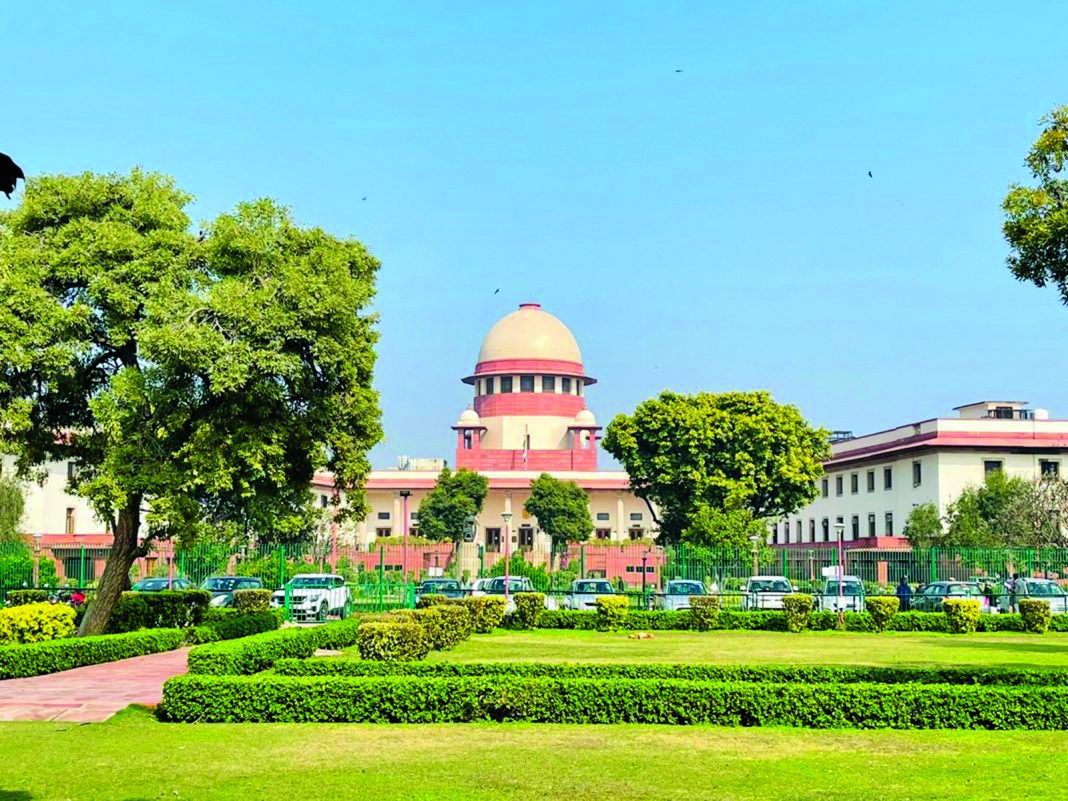The Supreme Court, while considering the Delhi government’s plea against the Lieutenant-governor’s (LG) appointment of Aldermen, observed that granting him the authority to nominate MCD (Municipal Corporation of Delhi) members could destabilise the elected civic body.
First, it is important to understand the meaning of “Aldermen”. Etymologically, the word comes from the combination of “old” and “man”, meaning older man or experienced person. The word originally referred to elders of a clan or tribe, though soon it became a term for king’s viceroys, regardless of age. Soon, it denoted a more specific title—“chief magistrate of a county,” having both civil and military duties.
In the 12th century, as guilds became increasingly associated with municipal governments, the term came to be used for officers of municipal bodies. This is the sense in which it is used till date.
The bench was hearing a plea filed by the Delhi government seeking quashing of the orders and notifications dated January 1 and January 4, 2023, issued by the L-G nominating 10 persons under the Delhi Municipal Corporation (DMC) Act, 1957, as nominated members of the MCD.
The plea further sought directions to the L-G to nominate members to the MCD under the DMC Act in accordance with the aid and advice of the council of ministers in the legislative assembly of the government of the National Capital Territory of Delhi.
In this whole issue, the main concern revolves around the suitability of the nominated individuals. After the recommendations were submitted to the L-G, it was discovered that two out of the 10 nominees were deemed technically unfit for the position. This raises questions about the thoroughness and transparency of the nomination process, as individuals who are not qualified or suitable for the role should not be appointed.
The perception is that the appointment of aldermen by the L-G is an attempt to maintain control and influence within the MCD by the ruling BJP government despite its electoral defeat. This raises concerns about the democratic principles of representation and the fairness of power dynamics within the MCD.
The apex court asked the L-G what is the source of power under which he can nominate aldermen to the MCD. “Show us what is the source of power of the L-G to nominate aldermen…. Does the Constitution recognise the power of LG to nominate aldermen?”, Chief Justice of India DY Chandrachud, presiding over a three-judge bench, asked Additional Solicitor General Sanjay Jain.
Jain, representing L-G, argued that there is a distinction between the powers of the L-G under Article 239AA of the Constitution and his role as an administrator of the national capital. He claimed that the L-G has an active role in the nomination of aldermen based on law.
However, the Supreme Court stated that by giving this power to the L-G, it could potentially destabilise the democratically elected MCD. The Court clarified that the L-G does not have extensive executive powers in the national capital, which operates under a unique “Asymmetric Federal Model” of governance.
The Court specified that the L-G can exercise executive power at his discretion only in three specific areas under Article 239AA(3)(a):
Public order
Police
Land in Delhi
The Court also stated that if the L-G disagrees with the council of ministers of the Government of the National Capital Territory of Delhi, he should follow the procedure outlined in the Transaction of Business (ToB) Rules 1961.
ToB rules emerge from Article 77(3) of the Constitution, which provides a framework for the allocation of work and responsibilities among various departments and ministries of the government. It outlines the procedures for the formulation, approval and implementation of government policies, decisions and actions.
Due to the co-existence of Article 239 and 239AA, there is a jurisdictional conflict between the government of NCT and the Union government and its representative, the L-G.
According to the Union government, Delhi being a Union Territory, Article 239 empowers the L-G to act independently of its council of ministers. However, the Delhi government held that Article 239AA bestows special status to Delhi in having its own legislatively elected government.
This creates a tussle around the administrative powers of the L-G and state government of NCT of Delhi. The central government believes that as Delhi is the national capital and represents the country, it should have authority over administrative services, including appointments and transfers. However, the Delhi government argues that in the spirit of federalism, elected representatives should have the power to decide on transfers and postings.
In the present case, the first issue emerged from a two-judge bench in February 2019 when deciding the allocation of powers between the Delhi government and the centre. The bench left the question of administrative service control to be decided by a larger bench. In May 2022, a three-judge bench referred this case to a larger bench on the central government’s plea as it felt that the question of control over administrative services required “further examination”.
The second issue involves the Government of National Capital Territory of Delhi (Amendment) Act, 2021, passed by Parliament. The Act states that the term “government” mentioned in any law made by the Delhi legislative assembly will refer to the L-G.
—By Abhilash Kumar Singh and India Legal Bureau


